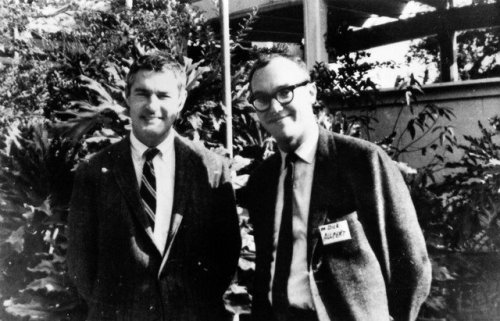
Written in the Margins of Ginsberg’s “Why I Meditate”
There are 10,000 reasons
to meditate (at least)
There are 10,000 beings
to save (for starters)
There are 10,000 demented states of consciousness
to purify (carpe diem)
There are 10,000 dreams
to snap out of (thank Buddha)
There are 10,000 ways
to befriend ourselves (go slowly)
There are 10,000 opportunities in 24 hours
to wake up (let’s do it)
Obituaries
There are two kinds
Of obituaries
The one you write
For the light of day
And public consumption
And
The one you write
From the deepest night
And private obsession
Yesterday/Today
Yesterday
I was reading a history
of Truman’s decision to use the atomic bomb
against Japan
In one of the chapters
The author noted that during the war
The US thought of the Japanese
As subhuman or inhuman
Depicted them as vermin, reptiles, apes
Called them “yellow rats”
“Yellow monkeys” “yellow bastards”
Today
We were walking
In the Botanical Gardens
Amid thousands at
The annual Japanese Festival
Throngs of people exploring with gusto
Anime, aikido, bonsai
Ikebana, kimono
Origami, sumo
Curiosity abounds
Smiles ubiquitous
Welcome!
Hello, Dualism
Come, have a cup of chamomile tea with me
I know you’ve had a hard time
Working overtime nonstop can’t be easy
Everyone’s on to you
And wants a piece of you
You animate the far right
You galvanize the far left
And everyone in between
I’m surprised I’ve yet to see
You end up explicitly on a million t-shirts
Or a batch of billions of Tweets
With you calling the shots
Friends become enemies in a flash
Chaos becomes a way of life
When you are at the helm
But, I’m not going to renounce you
And act as if I’ve cleansed you from my system
If I can’t practice metta with you
If I can’t practice metta with me
If I’m not part of the non-dualistic solution
Then I am part of the dualistic problem
Breathing in, I see my Dualistic thinking
Come on, join me, “Breathing out, I see my Dualistic thinking”
You can visit me anytime, Dualism
I won’t throttle or harangue you
Or your infinite manifestations
Some of which regularly appear on my newsfeed
Some of which appear on my hourly mind screen
Noticing you and offering a little hospitality
That’s within my power to do
OK Dualism, I hope you get a break soon
I know we’ll be in touch
Give my regards to You Know Who
A Beautiful Kaddish
by Andrew Wimmer
This book contains multitudes.
Among other things, some beautiful faces, a spear through the heart, Chomsky transformed, and a bunch of hearts and minds wrapped in a tumor.
This is a book about the untimely death of Mev Puleo, a promising photojournalist, theologian, and seeker of the truth.
“Blessed are those who mourn.”
And mourn they do.
If you want hagiography, the life of the smiling girl with the camera who goes to Latin America and saves everybody, forget it.
Mev calls home to Mark (so embarrassed), “I’m worn out and can’t make this, I’m coming back.”
She didn’t expect that. She could do everything.
As later Mark will call friends (worn out),“Mev has a brain tumor.”
We didn’t expect this.
Our broken hearts.
The seeing eyes.
In the end they’re all we’ve got.
It seems we just don’t have the intellectual or physical stamina pull this off!
We are not going to make it, and precisely in that lies the resurrection.
If you want hagiography, forget it.
Read something else.
A fairy tale, perhaps. (“They drove a lance through his side, and out flowed blood and water.”)
Here’s the real story.
Mark was on a high one sunny California day,
mentors were lauding him for his intellectual abilities.
A PhD, life in academia, full steam ahead.
But the morning of Chomsky’s visit to Berkeley
Mark’s brain (and Mev’s brain and Chomsky’s brain) get all mixed up with a tumor.
The Mark brain, the brain that would love nothing more than to sit down and read and think and then read some more, finds itself holding a tumor, and is at a loss.
Mark’s earlier work on Elie Wiesel is here radically redone.
It’s tumorized.
And Mark’s life work is here radically redone.
The worthy and unworthy victims that he learned about from Chomsky are all tossed into a cocked hat and dragged through a (literally) shitty death.
“A young husband shouldn’t have to writeh is wife’s obituary,” he says.
“Human beings shouldn’t have to endure terrible poverty and live in misery,” she says.
The worthy and unworthy victims are one.
We are all in this together.
A notion first grasped by the intellect and now felt by the heart.
And thanks to Mark’s beautiful Kaddish we all emerge full of light and with clearer eyes.
“Blessed are those who mourn.” (“Why does he dwell on his dead wife?”“He needs to move on,” they say.)
But the Dangerous Memory has taken root.
It’s all about seeing clearly and where it leads you.
Pet names, goo-goo eyes, passionate lovemaking, and brain tumors.
Dead—and not so dead—bodies piled at the edge of a feeding camp.
What does it mean to move on?
Well, of course Mev was extraordinary.
(OK, let’s indulge in just a little hagiography.)
She was beautiful and funny and smart and sexy and wild and a whole bunch of other great things.
She was also relentless. She had the bone in her mouth and wouldn’t let go.
Not everyone knows what to do with the bone.
Mev had more than a few ideas.
That’s what the boy from Louisville fell in love with, the clear eyes and the bone.
His Hound of Heaven. (There was hardly any time to sleep.)
And then his beloved rebbe Noam Chomsky comes to town, and what a day it’s going to be.
How can life get any better?
Sex in the morning, Chomsky in the evening.
All but for the strange alarm that day.
Rolling over in bed, Mev’s tumor speaks:“I belong to Chomsky.”
It’s as if the cock has crowed.
(I’d like to wring that goddammed cock’s neck.)
A massive betrayal?
The heart yanked up into the head and back into the guts.
And then the guts are on the floor.
The bodies pile up.(We’re not going to make it.)
Mev’s passionate, tumored heart had uttered a truth that Mark had long been struggling to understand.
“I belong to Chomsky.”
No longer a contest but a unity,the intellect finds its true home and takes flight.
“Blessed are those who mourn.”
It comes first.
It’s that first baby step (ha!) in a wickedly logical progression. (There goes that zany Nazarene with his Borscht Belt humor.)
“Blessed are those who mourn.”
It’s the first in an ordered series.
All those other blessed things can only follow.
Hunger and thirst for righteousness, merciful, pure of heart, peacemaker, whatever.
And thus we can, and do, move on.
So, if you want hagiography, read something else.
If you want clear eyes and want to struggle to know the one thing that matters, read The Book of Mev.
It’s got a blue cover and a lot of nifty photographs.
I think you’ll like it.
Don’t Get Rattled by Samsara
So many of my brilliant former students—
Their families from Gujarat, Bijar, Delhi,
Kerala, West Bengal—
Would pity me
Or express incredulity
That I, their erstwhile quasi-prof,
Hang on the words
Of Sri Anandamayi Ma
Listen to circa mid-80s recordings
Jai Ma Kirtan
Memorize chapters of the Gita
Chant Hare Krishna when raking leaves
When they’ve left all that behind
(What their grandparents wanted continued
Even amid the maya malldom of America)
Live and let live, Shimmelstoy
Meditate and let not meditate
But one day, if I hear through the mangovine,
One of them is in that predictable predicament
Of the arriviste Richard Alpert at Harvard
I’ll shell out twenty bucks
Track down her address
Put in the post a simple investment
In the next hundred years–
A timeless copy of Be Here Now
Just This
No sipping Northeast Coffee latte supreme with whipped cream
No texting someone I’ll see in ten minutes
No zoning out to Diane Rehm
No penciling out the evening workout on a crumpled scratch pad
No returning that phone call to Grushenka Smith
No smoking the 5th and 6th cigarettes of the day
No daydreaming about ______________
No singing at 96 decibels of of Dylan’s “Positively 4th Street”
No listening to audio lectures on Fernando Pessoa
No reading two paragraphs of Dear Layla on a smart phone
No flipping through Bengali vocab flash cards
No voicing via digital tape recorder of random “to do’s”
No munching on the best Crab Rangoon in the city
Just this–
Drive the car
This page is part of my book, Dear Love of Comrades, which you can read here.
